Passionate environmentalist and coordinator at SA’s Port Environment Centre tells us about her journey from mining engineer to environmental steward. Meet Emma Sandery.
“I think for people just getting started, it's starting small, and starting with something.”
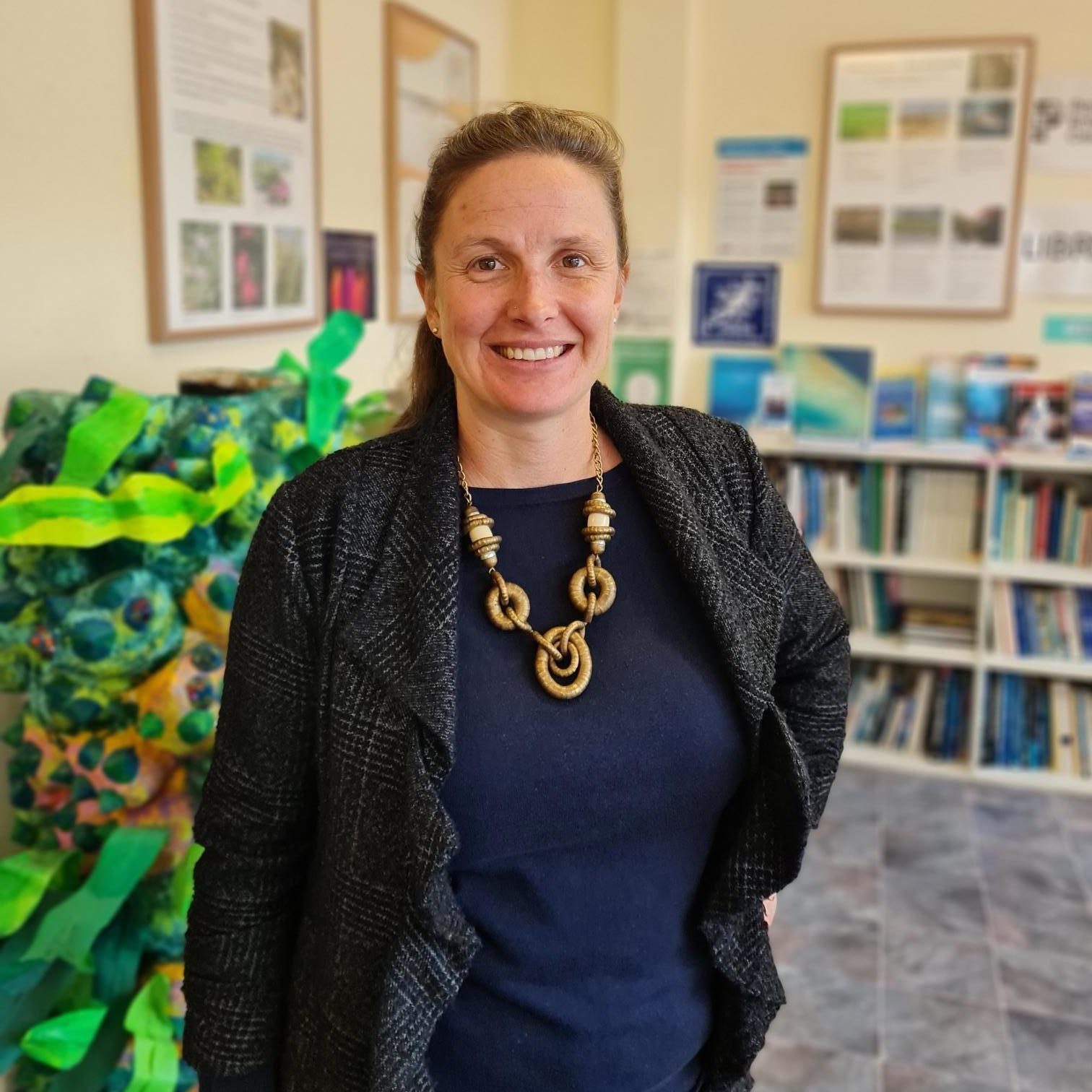
“My name is Emma and I’m working now as the coordinator of the Port Environment Centre
in Port Adelaide.
I grew up in Adelaide. My parents were both outdoor education teachers and high school teachers so we had heaps of school holidays out camping and bushwalking, and very much out in our environment, so I’ve got lots of strong memories of that as a child.
After school I actually went to uni and studied mining engineering, so I’m a qualified mining engineer, which probably surprises some people – I know it surprised my family at the time but I was just attracted to engineering, as a profession it suited my brain and my logic, and mining engineering just seemed kind of really exciting at the time.
So, I studied as a mining engineer and then I worked in that industry for a while – so in Mt Isa in a big underground copper mine as a graduate, working underground for a year with the crews and getting lots of practical experience, working in scheduling, working in design.
And then I came back to Adelaide and continued working for an engineering firm here for a while.”
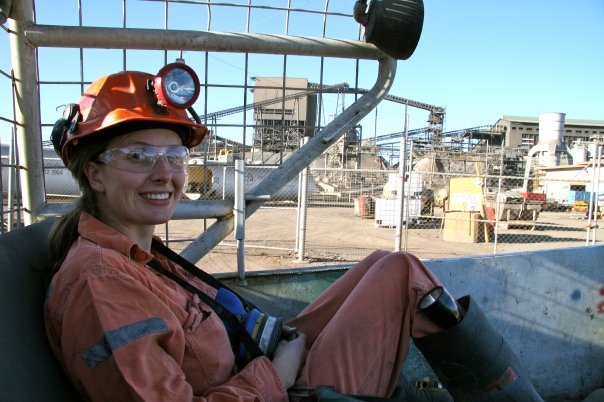
“But I guess my heart was never really in it, so I was kind of questioning things all along – I guess from an environmental point of view – and decided, not too far into it, to do some more study, and try and transfer into a more environmentally-focussed role.
So I went back to uni and part-time studied a Masters in Environmental Management, so studying while I was working, and then while I was having my first child – I guess I finished off my studies through that period so it took me a long time but I got there.
Since then I’ve made a real, huge change in where I’m working.
So I’ve done little bits of work with local government in their environment team, I’ve run Living Smart courses, which are a sustainable living course supported by Green Adelaide, and yeah, other kind of bits and pieces in that environmental space and now I’ve been here at the Port Environment Centre for the last 3 years as the coordinator.”
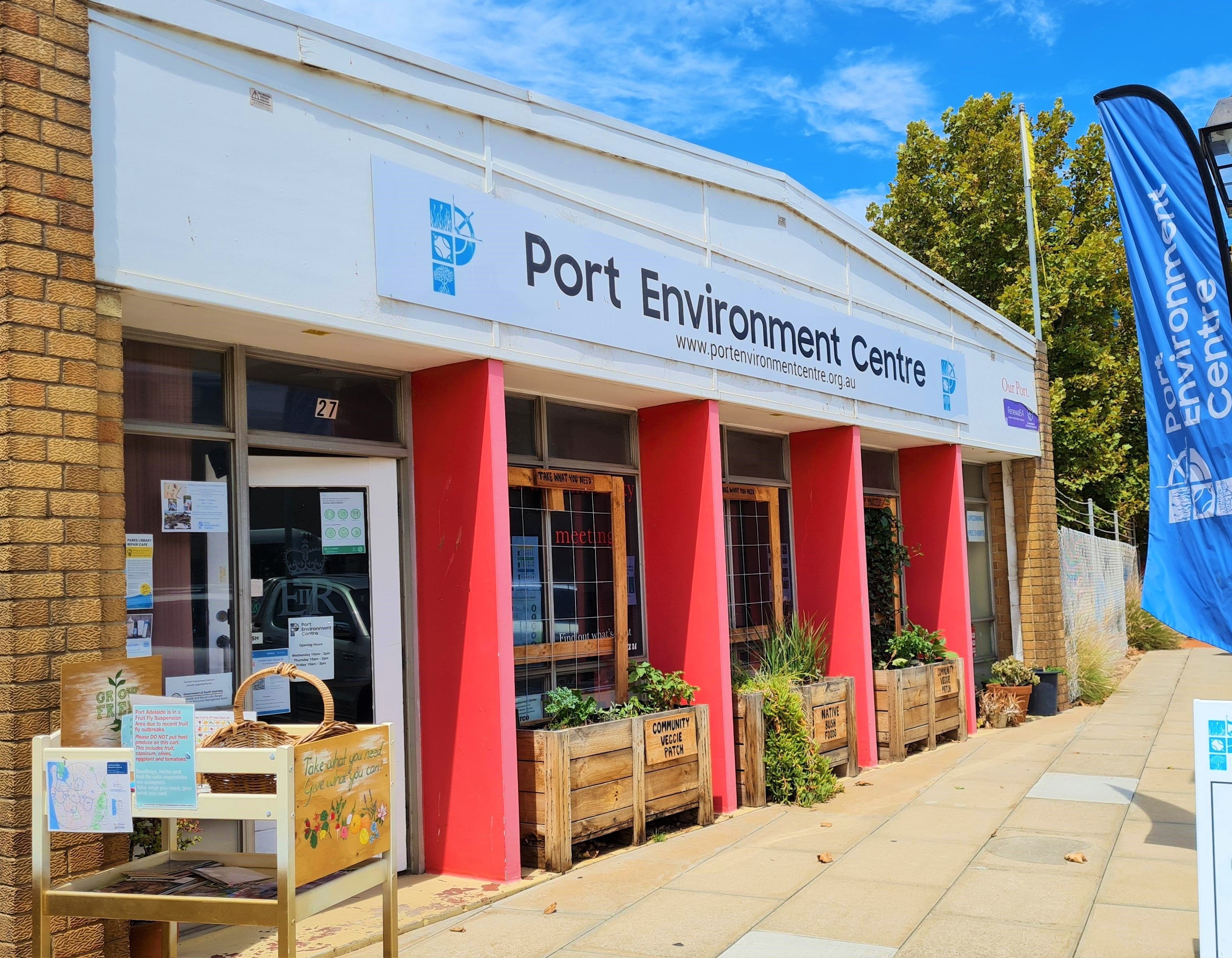
“The Port Environment Centre probably has 4 kind of key areas or activities that we do.
So the first thing is we’re very much a hub for the local community; we’re a place people can drop in and access information, ask questions, and we can help people connect to our local environment and to some of the other things that are happening in the area.
We also try really hard to support local environmental groups, so whether that’s providing a venue that they can come in and use to have meetings or small events, trying to promote what they’re doing through our newsletter and social media, trying to create opportunities and times for people within those groups to be able to come together and network and cross-connect.
Then, also, in terms of supporting the local groups, I guess we are able to help them do bigger things by running events in conjunction with them and taking on some of that organisational role.”
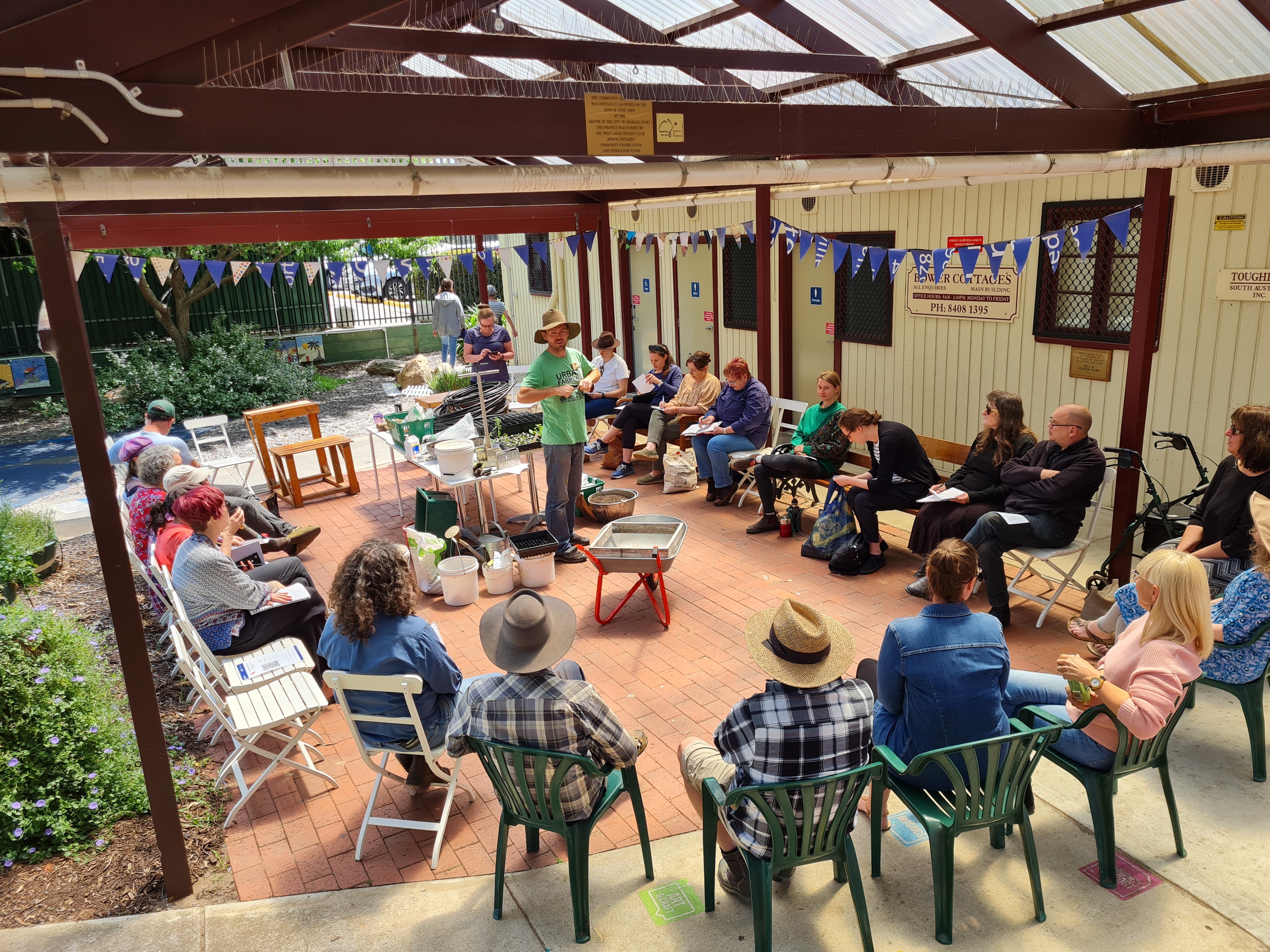
“We run a heap of different events, workshops and activities throughout the year, mostly for adults, on really varied topics – so everything from learning more about our local environment, coastal and marine environment, learning how to live more sustainably or more simply, gardening and trying to help people connect to local environments – so we’re taking a lot of events outside to local places.
I think we’re probably churning out 2 or 3 different things a month. So it’s really busy and there’s a lot of different ways people can get involved.
By joining our mailing list and keeping an eye on what we’re doing on social media, as things pop up you’ll see something that you think, “Oh yeah, that’s what I want to be learning about right now”.
I have really enjoyed getting to know the community here. I see so many great people doing so many great things for our environment every day, so it really helps to keep me feeling quite positive when you think about the state of our world.”
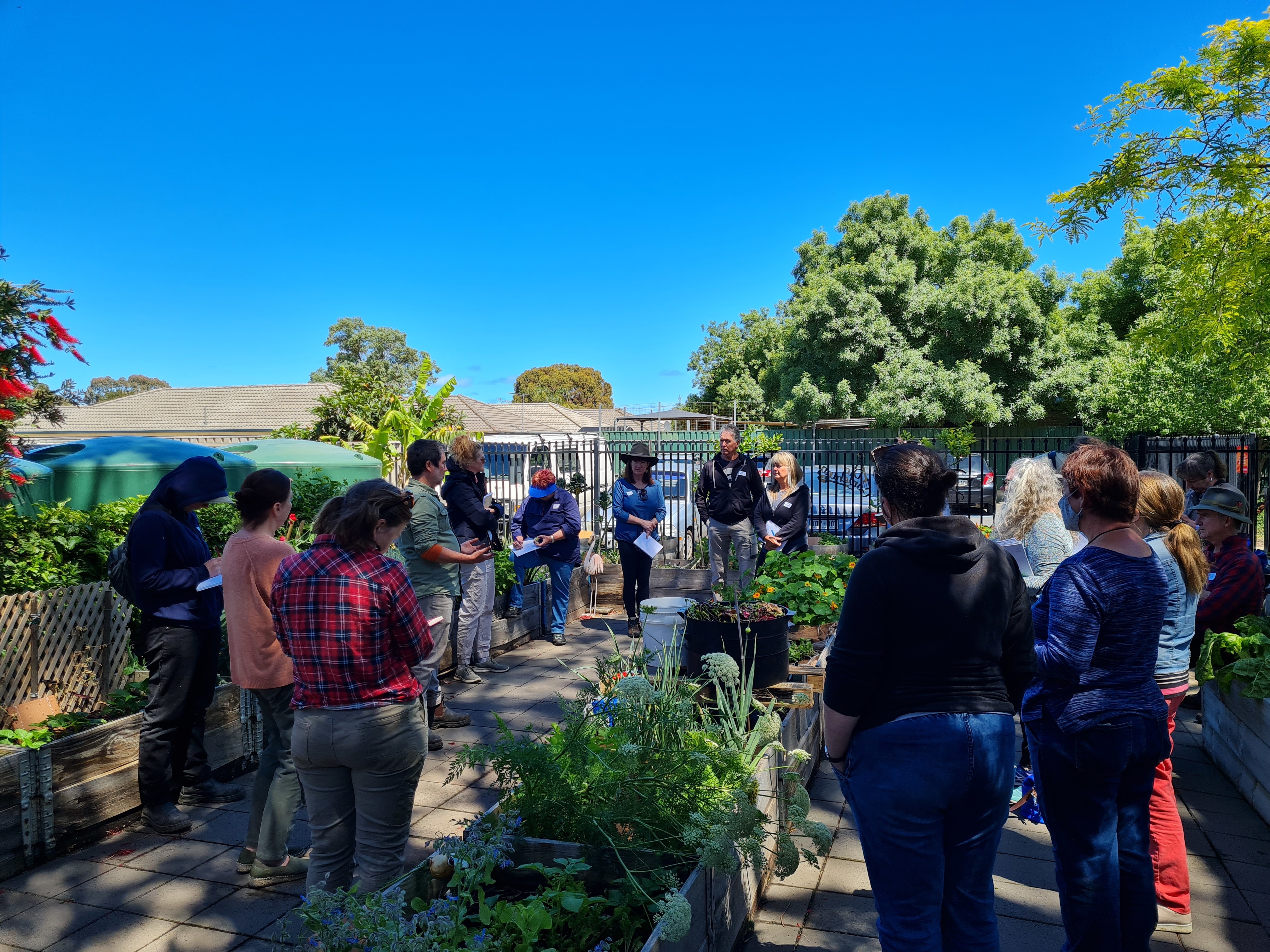
“I think I have always been passionate about the environment and sustainability. I think it goes right back to having those opportunities to be kind of in nature and amazed by our natural world from when I was little, you know, camping.
Yes, I think the environment has always been something really, really important for me.
I guess you go through phases as you're growing up, where, you know, life might get busier, or, you know, I think about my time when I was at uni, for example, it was always there in the background but it wasn't something I was really actively involved in. And so I've definitely come back to it a lot more as I got older.
It's one of those things that the more you learn, and the more you're involved in this space, the more possibilities you see of things that you can do and can get involved in.
And the more you also care about it – massively.”
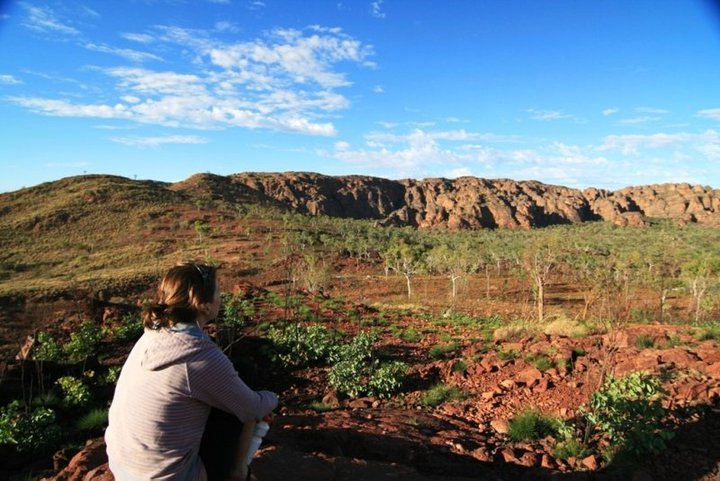
“I think for people just getting started it's starting small and starting with something.
And the more you can meet people, or talk to people and ask questions about what's happening, the more ideas you get of how to get started.
If you live in the Port Adelaide area, or you're not too far from us, we love people to come and visit and have those of conversations because we're really well placed to be able to help you find what it is that you're looking for at the moment – whether that's a volunteering opportunity, whether that's a workshop to learn something, or whether it's just the right people to talk to.
If I look at myself, the more I've learned, and the more I've got involved in, the more opportunities you then see to get more involved.
I know for us, we really started with our home and how we were living and what we were doing. And then that kind of spreads out into the community.
I'm a parent, I've got two young children. So for me, it's really important that my children and their values align with how things need to be done. You know, the world is in a pretty scary place and everyone can't just keep living how we are living if we want a future for our planet.”
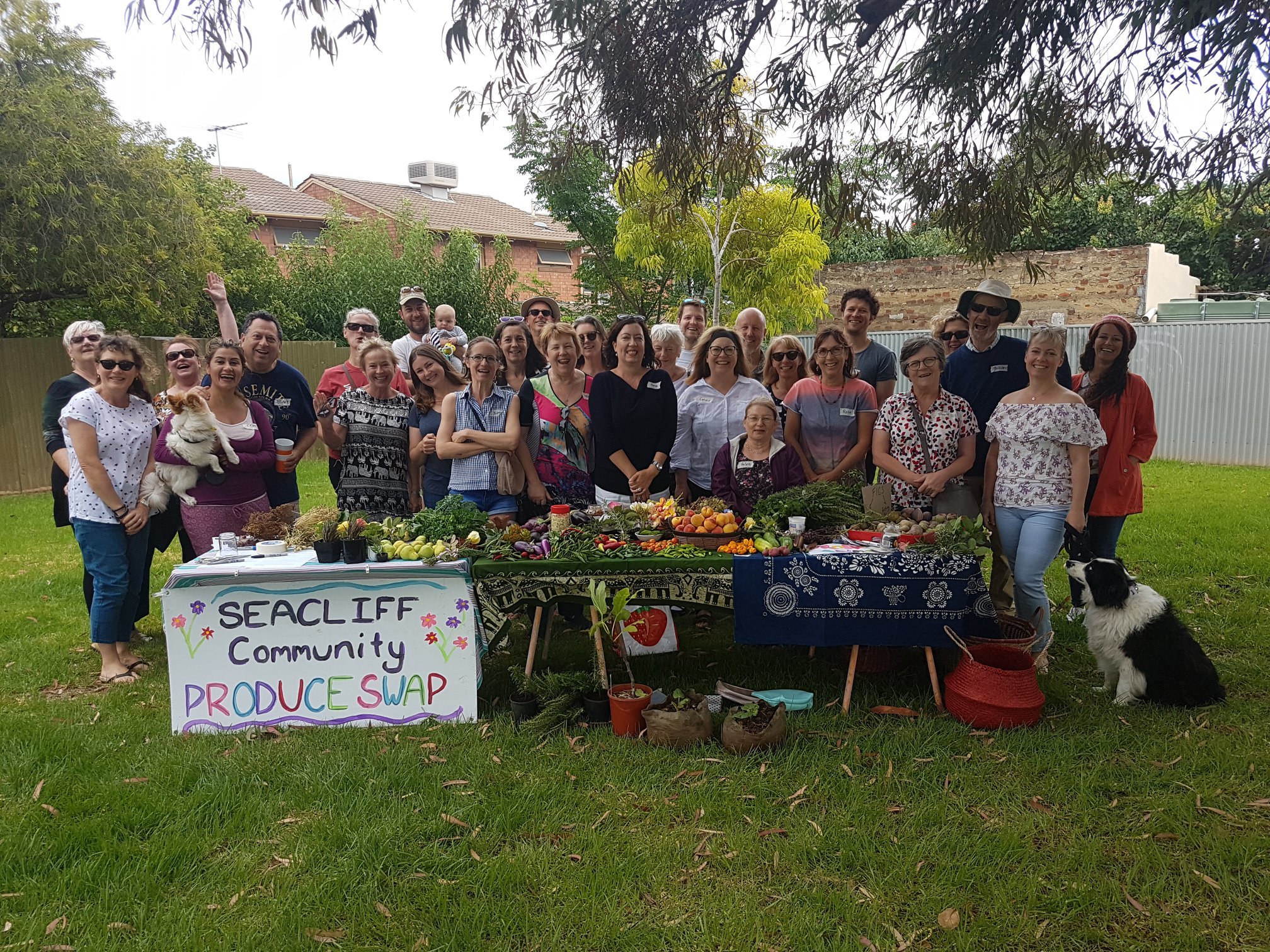
“It's about resetting values around consumption, how much stuff we should have, changing the way we think about things.
As a family, a few years ago, we set ourselves a challenge of not buying anything new for the year. Just in terms of you know, clothes, shoes, toys, books, things for the house.
By making that an actual challenge that we said out loud and kind of set as a target, we kind of got through that year, pretty easily actually. And now – while we might not be sticking to it quite so strictly – it's kind of just how we live and how we do things most of the time.
By having a challenge that was a focus, it also meant we had so many conversations with people, because you can say, “Oh, we're doing this thing, we're trying to spend a year not buying anything new,” and it kind of got everyone around us also thinking about what they do, I guess.
Most people do care. Most people care deeply about the state of our world. But for a lot of people, it's hard to know where to start or what to do with those feelings.”
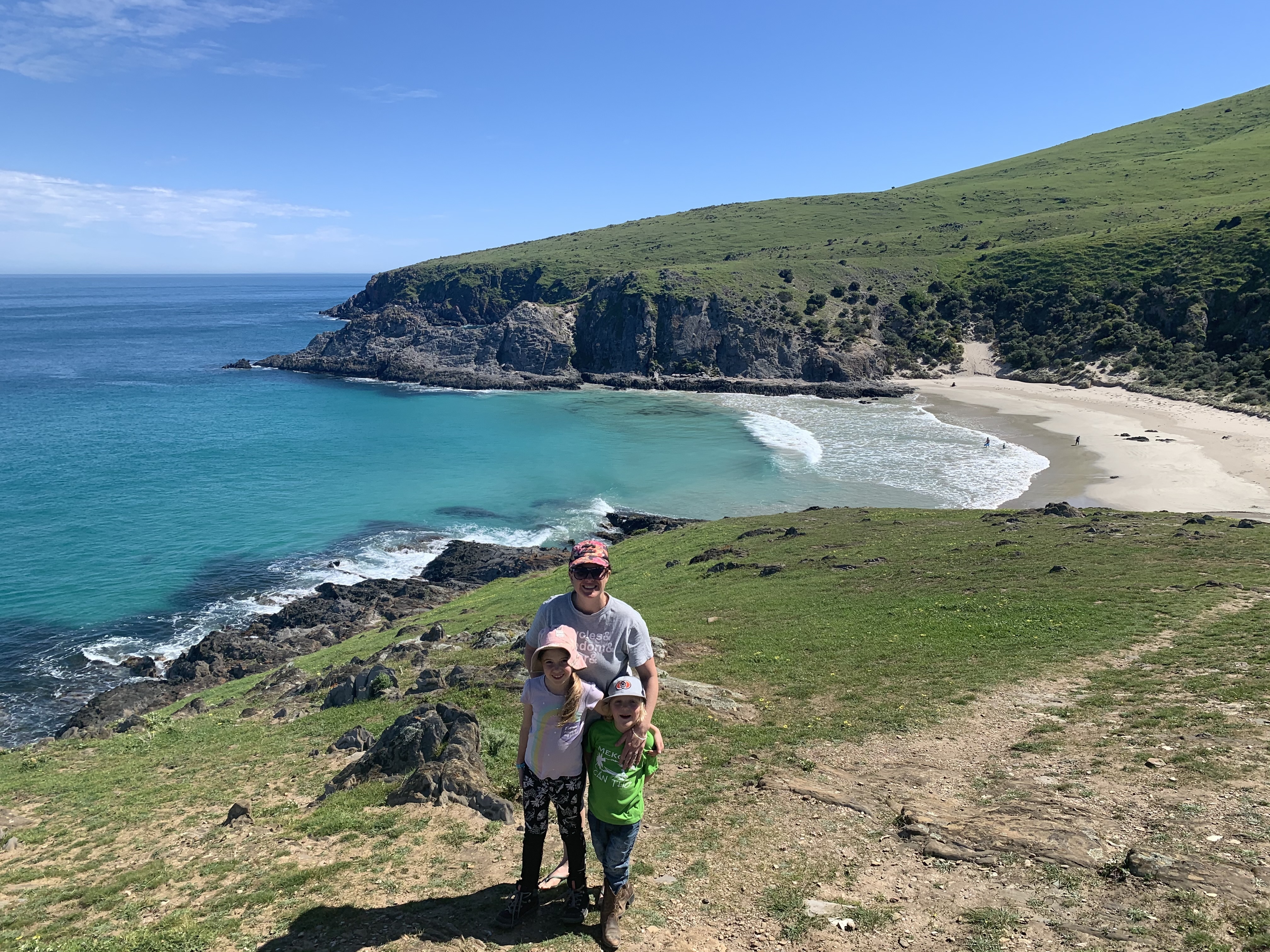
“A take away from our Buy Nothing New Year is there's so much stuff in this world already. And once you start looking, you realise just how much is already out there.
There's a few things maybe we kind of went without, or we put off for a little while, but it was a lot easier than you'd think it would be. And it made it really hard to go back from that.
[If you’re just starting] set the goal. Set something concrete that you're going to try and work towards. Maybe it's for 2 months you're not going to go to the shops, you're not going to go to the big department stores. If you need something, you're going to go to the local op shop, you're going to ask your friends or you're just going to make do without it.
We have very much cut ourselves off from that kind of big retail space. I don't see the ads, I don't see the displays. You don't have that temptation in your life. And you just kind of forget about all of that and get on with the stuff that's actually a lot more important.”
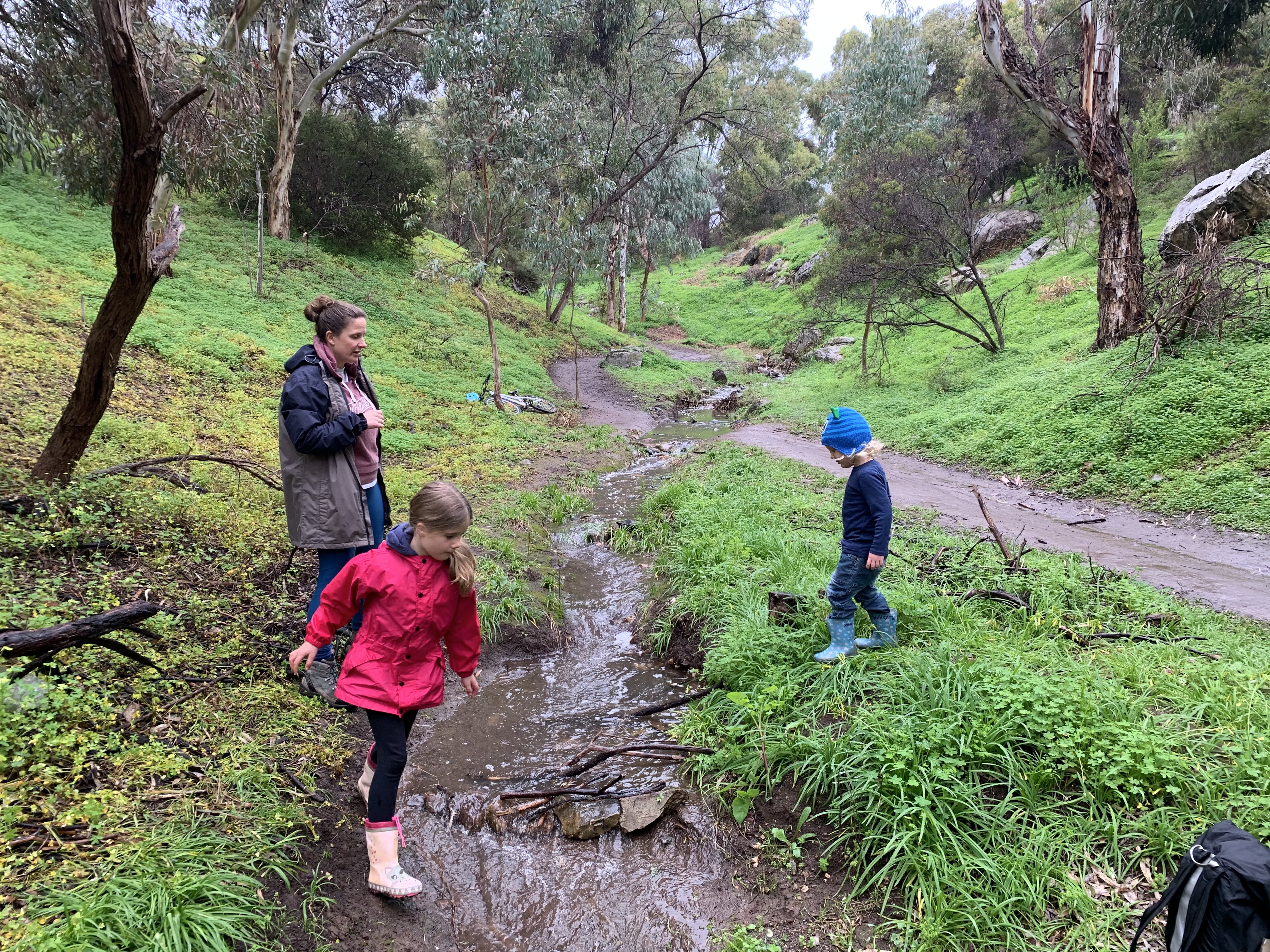
“I love seeing birds in our yard, in our garden.
We have some little – I don't see them often – but from time to time I'll catch a glimpse of a little silvereye. They’re kind of the size of a sparrow. And you might think it's just a sparrow as it darts through a bush and then you’ll catch a better glimpse and notice that it's a silvereye, which is a little local bird.
That makes me feel really happy because it shows that having a few native bushes in our garden and being lucky to have neighbours with some nice big trees has created a space that these little birds want to be in. And so they make me happy that our garden is a place that they want to come and visit sometimes.
I think we all feel it – if you can get outside and sit under a tree or find, you know, the little gulley or the local wild space, you just feel better, don't you? You feel calmer, and it puts things into perspective.”
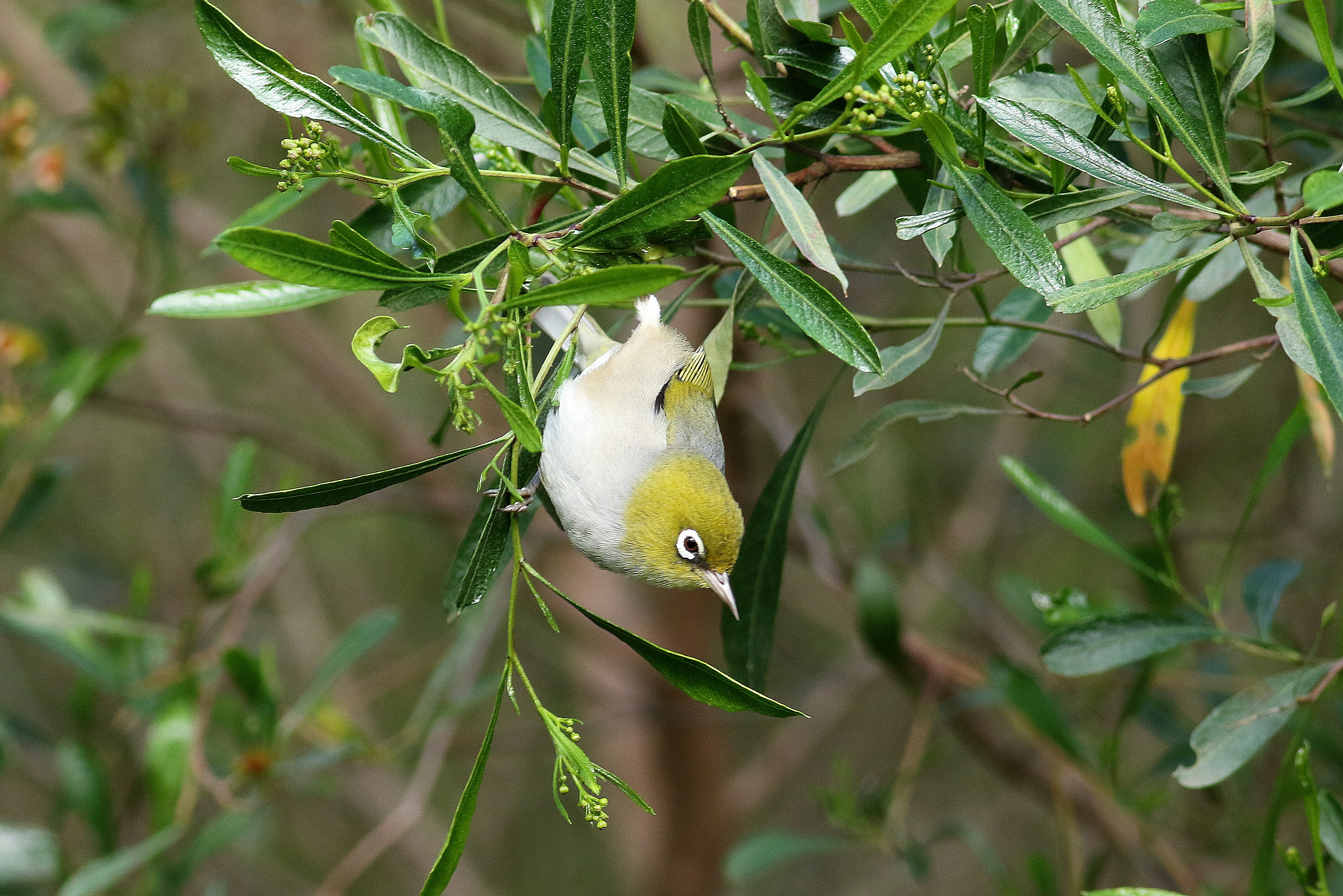
“We need more green. We need more green everywhere – for habitat and to help us be able to deal with the changing climate that's coming. We need to cool our cities, we need to make places that people can live comfortably.
We need everyone to have those opportunities, not just some suburbs. You know, if you look at the spread across Adelaide and the spread of greening, it's not fair and it's not equal.
To be healthy we need we need trees, we need to protect the big old trees we have, we're still just losing them so quickly. We need to respect and protect what we have and look for any and every opportunity to introduce more.”
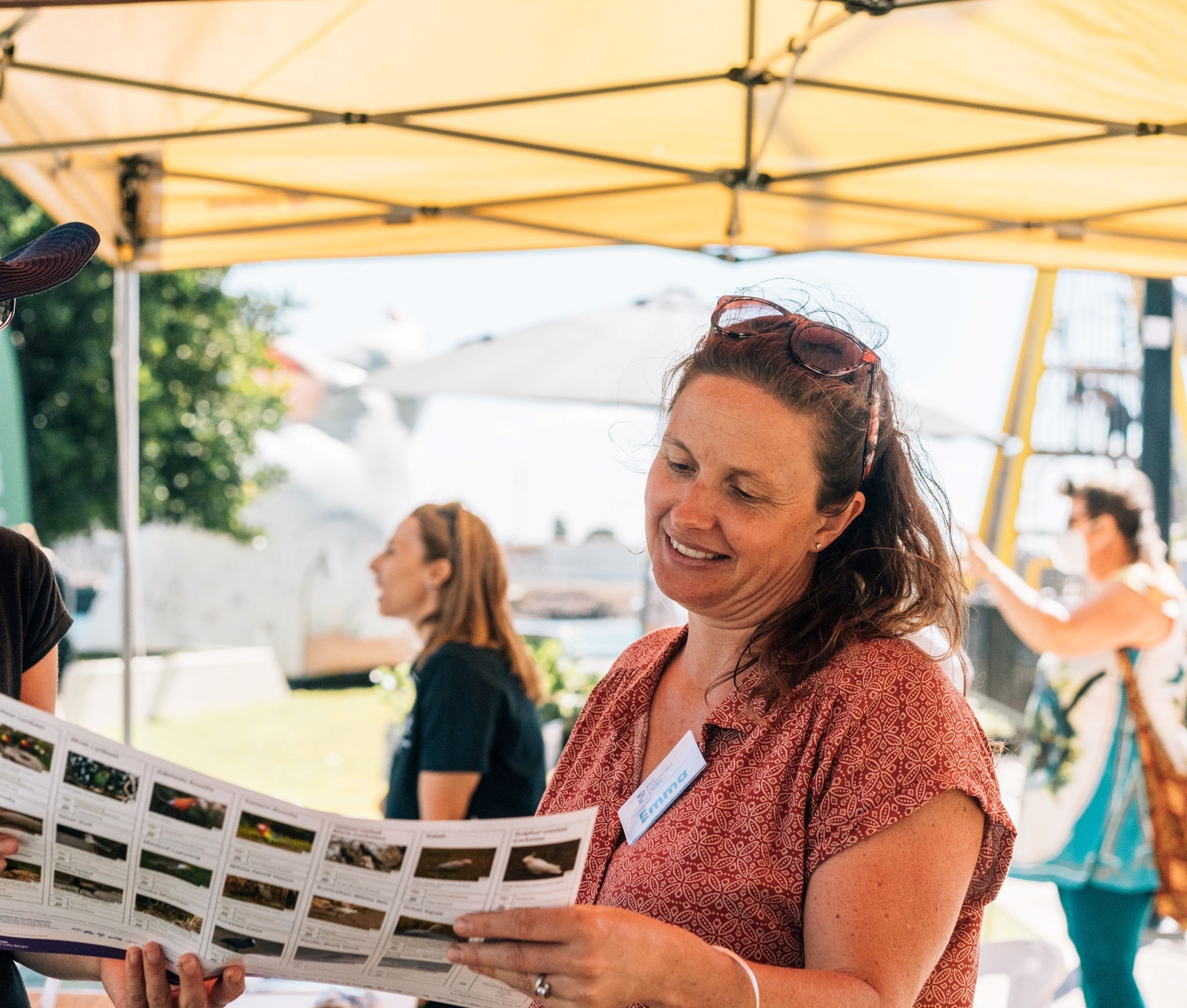
“Protecting nature is important because nature is everything.
We can only live because of the nature that exists in our world. You know, we need trees to create the oxygen that we need to breathe.
You know, nature is everything and as a species, we are completely dependent on nature, or should be. Yeah, nature is everything.”
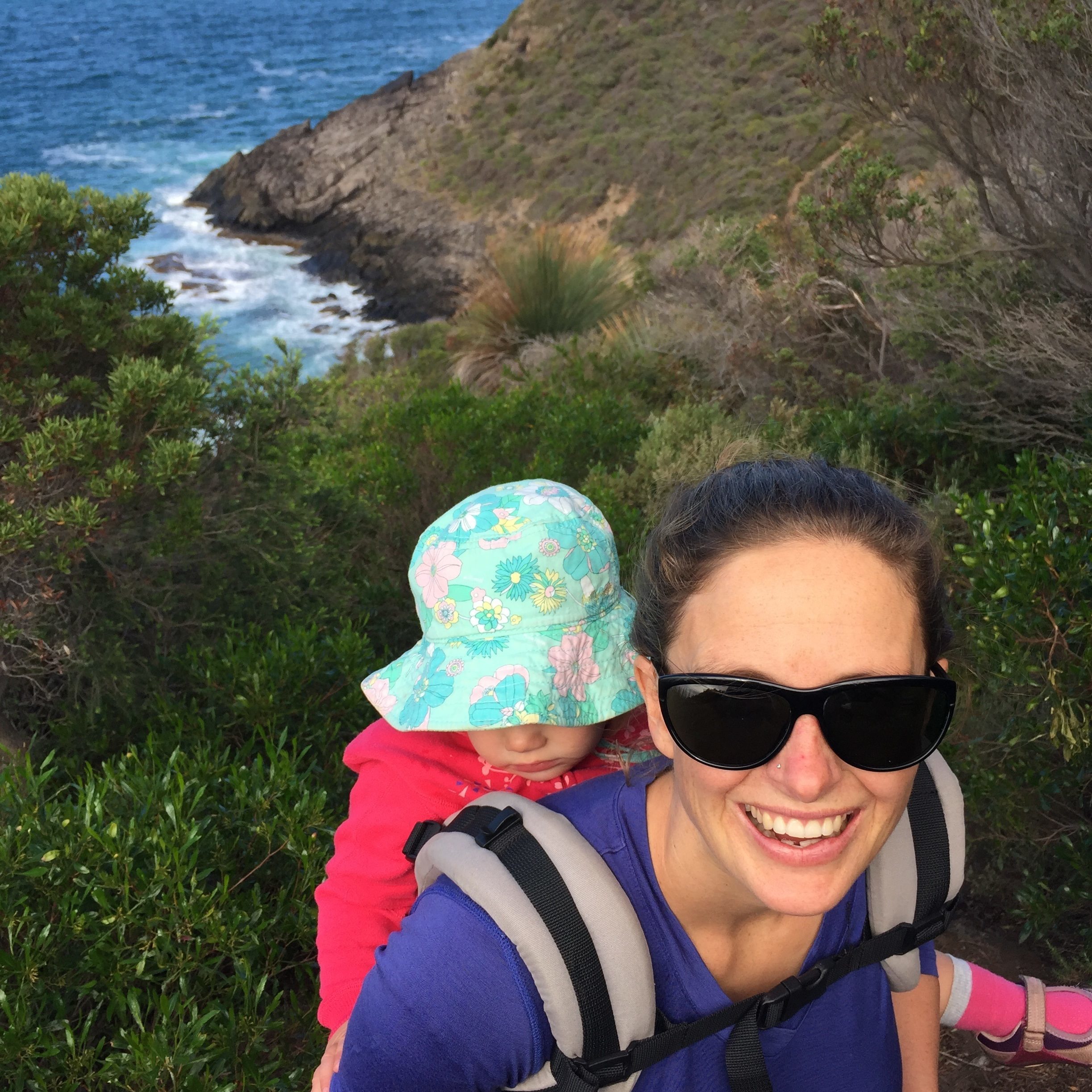
Humans of Green Adelaide is a first-person series about the people of Adelaide and their connection with nature. Come on everyone, let’s green Adelaide!